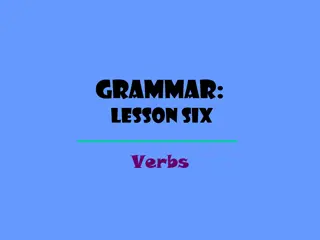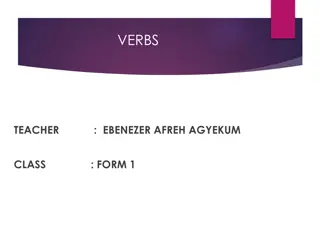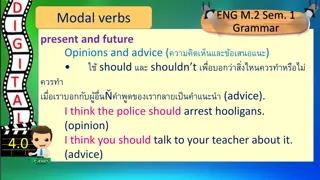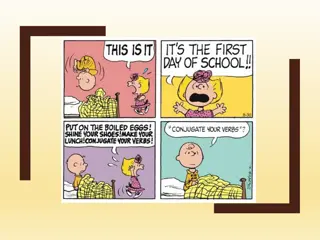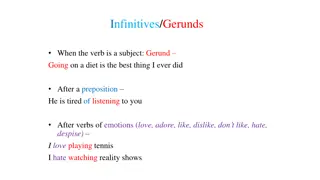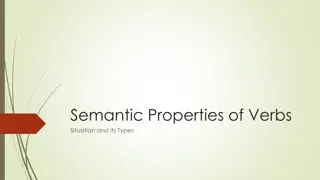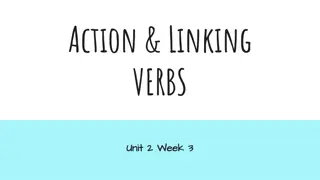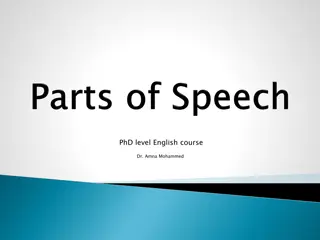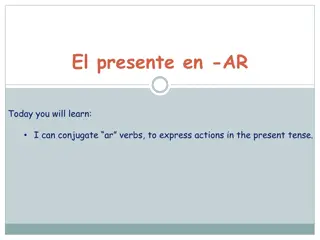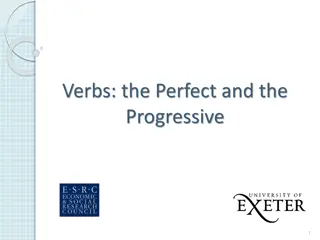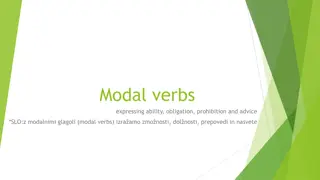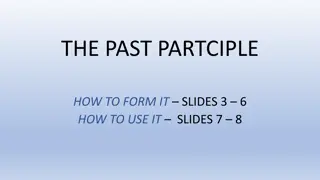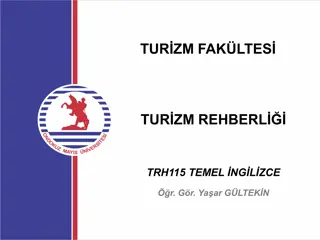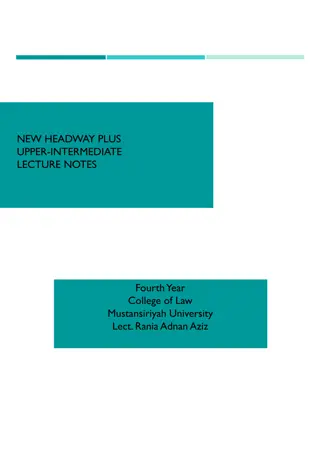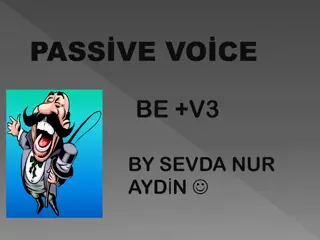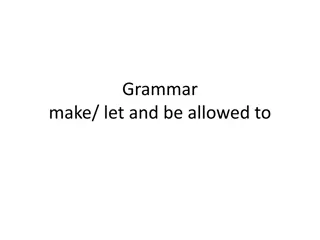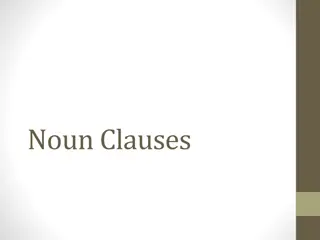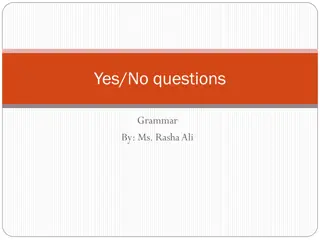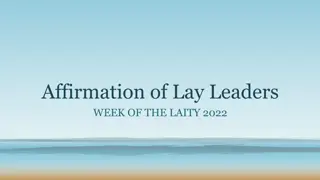Understanding the Difference Between Lay and Lie Verbs in English Grammar
Learn the distinction between the transitive verb "lay" and the intransitive verb "lie" in English grammar, along with their principal parts and usage examples. Avoid confusion by understanding when to use "lay" and "lie" correctly in different contexts.
Uploaded on Sep 20, 2024 | 0 Views
Download Presentation

Please find below an Image/Link to download the presentation.
The content on the website is provided AS IS for your information and personal use only. It may not be sold, licensed, or shared on other websites without obtaining consent from the author. Download presentation by click this link. If you encounter any issues during the download, it is possible that the publisher has removed the file from their server.
E N D
Presentation Transcript
From Real Good Grammar, Too By Mamie Webb Hixon Created by Kathy Conforti Carey Edited by Mamie Webb Hixon January 22, 2012
Which word should you use? Do not confuse the transitive verb LAY(which has an object) with the intransitive LIE (which does not).
The principal parts of LAYare lay lays laying laid (has) laid
When LAYING (putting down) tile, you must be careful to get it straight.
Someone has LAID (placed) my keys in the wrong place.
I must have LAID (placed) my brush down somewhere yesterday.
Im always LAYING (placing) things down and forgetting where I LAID (placed) them.
The principal parts of LIE are lie lies lying lay (has) lain
Small children should LIE (recline) down for a nap after lunch.
The cicada hoard HAS LAIN (rested) dormant for years, awaiting the right time to strike.
The first command my dog learned was LIE (recline) down, Spike.
The robber told the bank tellers and the customers to LIE (recline) down on the floor.
Though some trained professionals and students claim to have learned that inanimate objects/things cannot lie (rest) that only people lie (rest) no such rule exists.
Trees were LYING on the ground after the hurricane.
I (layed/laid) the book on the table yesterday. I LAID the book on the table yesterday. I think I will (lay/lie) down and take a nap. I think I will LIE down and take a nap. My cat is (laying/lying) in its bed. My cat is LYING on its bed.
The book is (laying/lying) on the table. The book is LAYING on the table. I (lay/laid) around all day yesterday. I LAY around all day yesterday. You re (laying/lying) on my blanket. You re LYING on my table.


